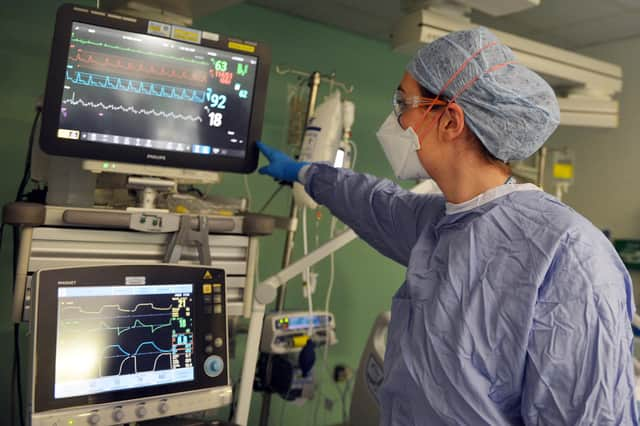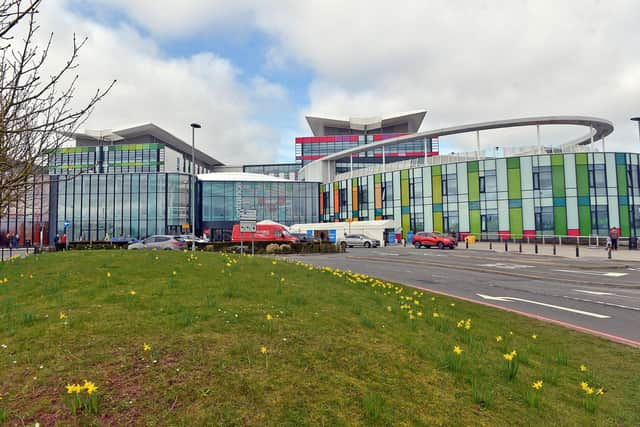Covid crisis causes 'major backlog' of routine ops at King's Mill Hospital


That’s according to new figures, released by the Nuffield Trust, an independent health think-tank that aims to improve the quality of healthcare by providing evidence-based research and analysis.
Nuffield’s data shows that waiting lists within the Sherwood Forest Hospitals Trust, which runs King’s Mill, and across the rest of the UK, face a “major backlog” that could take years to put right.
Advertisement
Hide AdAdvertisement
Hide AdNHS rules state that patients referred for non-urgent, consultant-led, elective care should start treatment within 18 weeks. Elective care is defined as planned in advance, involving specialist clinical surgery after a referral by a GP.


NHS statistics reveal that 1,385 patients, listed for elective operations within the Sherwood Forest trust at the end of February, had been waiting for at least a year.
That equates to four per cent of those on the waiting list, and represents a huge increase from the year before when there were none.
Across England, the number of patients waiting this long has risen to 387,900 – almost 250 times higher than the previous year and the biggest total since 2007.
Advertisement
Hide AdAdvertisement
Hide AdOverall, a total of 36,894 people were waiting to start hospital treatment within the Sherwood Forest trust at the end of February – an increase of 43 per cent on the same month last year. Across England, the figure was 4.7 million.
For the trust, chief operating officer Simon Barton said: “As Covid-19-related hospital-admissions continue to fall, and the pressures of the pandemic begin to ease, we are working hard to reduce the backlog in waiting lists.
"Like all NHS providers, our waiting lists have inevitably grown over the course of the pandemic and it will take some time before wait times reduce.
"We know how worrying and frustrating this can be, and we are currently contacting patients on a waiting list who haven’t recently been seen or haven’t get a booked appointment.”
Advertisement
Hide AdAdvertisement
Hide AdNuffield says the strain of the backlog on patients should not be under-estimated, but added it was no surprise given the intense pressure caused by Covid-19 hospitalisations.
Sarah Scobie, deputy director of research at Nuffield, accepted that healthcare staff at King’s Mill and elsewhere had made huge sacrifices during the pandemic.
But she added: “It is clear the NHS has been set back years as it faces a battle to clear these major backlogs of postponed care.
"Returning to the level of activity seen before March, 2020 will not be enough to meet demand, and we will continue to live with coronavirus for years to come.”
Advertisement
Hide AdAdvertisement
Hide AdThe King’s Fund, an independent health charity, is urging the government to start planning for long-term NHS recovery.
David Maguire, a senior analyst at the charity, said: “A good place to start would be with a fully-funded workforce strategy to address the persistent staff-shortages that have dogged the NHS for years.”
Prime Minister Boris Johnson has promised the government will ensure the NHS has the funds it needs to tackle the waiting lists.
And Professor Stephen Powis, national medical director at the NHS, pointed out the dedication of staff had still guaranteed two million routine operations and procedures during January and February.